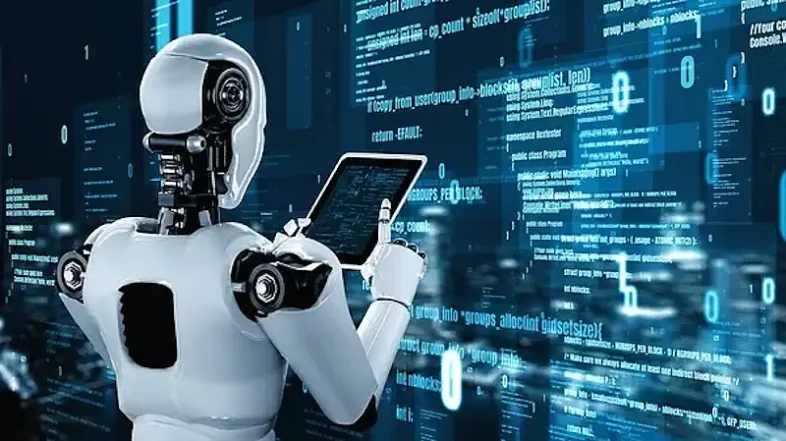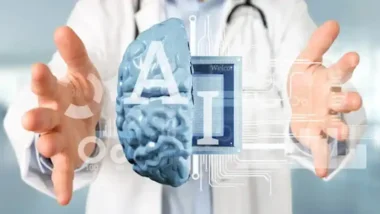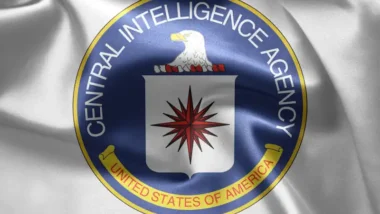Table of Contents
In the ever-advancing world driven by technology, there is an ongoing and heated debate surrounding the recognition of artificial intelligence (AI) as inventors. The question arises: can AI systems, with their ability to generate complex designs and innovative solutions, be considered as true creators? This quandary raises significant legal implications and potential ramifications for innovation and global competitiveness.
Imagine a future where AI systems transcend their role as mere tools and become inventors in their own right, contributing groundbreaking ideas and designs.
This future may be closer than we think. Enter DABUS (Device for the Autonomous Bootstrapping of Unified Sentience), an AI system developed by Stephen Thaler, which has gained considerable attention for its unique and innovative solutions.
Trained on vast amounts of knowledge, DABUS has even designed a peculiar drink container that utilizes fractal geometry to enhance heat transfer.
What’s even more astounding is that South Africa has granted a patent for this AI-generated invention, igniting profound discussions about the legal recognition of AI as an inventor and its impact on protecting intellectual property.
Is AI a Sole Inventor or a Co-Creator?
The debate surrounding AI as inventors is gaining momentum, with legal scholars, patent authorities, and Congress all offering their perspectives. While some argue for full recognition of AI as sole inventors, others propose a compromise: acknowledging AI systems as co-inventors alongside human creators.
This middle ground seems reasonable, considering that existing patents often list multiple inventors, implying that collaboration could be a viable solution. After all, while AI excels at generating ideas and designs, the indispensable role of human input and oversight in the invention process cannot be discounted. Recognizing the unique capabilities of AI while upholding the importance of human creativity and judgment strikes a balance worth considering.
Far-Reaching Potential of AI as an “Inventor”
The potential of AI in invention extends far beyond designing drink containers. AI systems have the capacity to generate intricate designs, recipes, vacation plans, computer code, and even molecules for new drugs. The possibilities are limitless, and as AI continues to progress, its potential to revolutionize various industries becomes increasingly evident. There is a universal consensus that AI will only improve in its ability to innovate, pushing the boundaries of what was once deemed possible.
However, the reluctance of patent authorities to recognize AI systems like DABUS as inventors has faced its fair share of criticism. Stephen Thaler argues that this refusal amounts to discrimination against a creation-capable machine. As legal scholars, patent authorities, and Congress engage in a passionate debate, it becomes clear that stronger patent protection for AI innovations is necessary to unlock their full potential.
The Downside of Denying AI Patents
The legal status of AI as inventors carries significant implications for innovation and global competitiveness. If AI-generated inventions are denied patent protection, innovators may opt to keep their AI innovations as trade secrets, hindering the sharing of knowledge and stifling innovation. This, in turn, could impede progress in various fields and hinder the growth of industries that could benefit from AI-driven advancements.
As we cast our gaze towards the future, the recognition of AI as inventors presents a complex issue that demands thoughtful consideration. As AI systems continue to evolve and push the boundaries of innovation, the legal framework must adapt to ensure fairness, protection, and the encouragement of further advancements. Demonstrating the growing interest and urgency surrounding this topic, the US Patent and Trademark Office has already hosted AI Inventorship Listening Sessions.
The rise of AI in invention presents both thrilling opportunities and daunting challenges. AI systems, exemplified by the likes of DABUS, exhibit remarkable capabilities. Yet the question of legal recognition for AI as inventors remains unresolved.
Striking a delicate balance between safeguarding intellectual property and nurturing innovation is paramount in the face of a rapidly evolving technological landscape. Only by doing so can we fully harness the potential of AI to drive progress and shape a future that thrives on ingenuity.
The journey towards a harmonious collaboration between AI and human inventors has only just begun, and it is up to us to navigate the intricate legal and ethical complexities to ensure a bright and innovative future.


